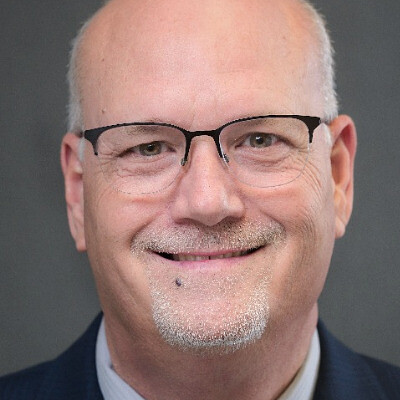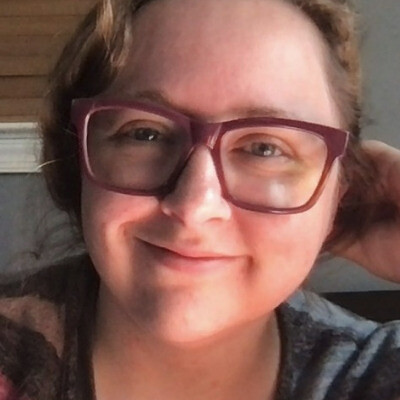This presentation will provide attendees with an overview of a novel utilization of a multi-agent generative AI platform intended to support the self-directed learning of health sector program students regarding the roles and responsibilities of other professions as a part of their interprofessional training. Students engaged with multiple agents on this platform, each agent representing a separate health profession, which were trained using data from both the professional literature and a set of existing case study materials. This particular usage of the platform centered on community health response to the opioid crisis as part of a multi-institution interprofessional education experience. Considerations for developing the multi-agent platform, guiding learning objectives and competencies, and student experience utilizing this platform as a part of a virtual interprofessional education experience will be discussed. This talk aligns with this year’s NEXUS theme as it presents a new model for a core domain of interprofessional training, that being, the clear definition of roles and responsibilities which are required as a starting point for good outcomes in collaborative care.
Results of a mixed-methods study of student learning outcomes relating to roles and responsibilities and their perceptions of interacting with the multi-agent environment will be shared. In particular, the question of whether multi-agent platforms such as this one can support the self-directed learning of health professions students enrolled in introductory IPE curriculum, as a preparatory activity for more applied and live case-based activities with students from other health professions programs was explored (N = 250).
After attending this session, participants will be able to describe the functionality and educational value this prototype genAI platform brought to interprofessional education efforts tied to roles and responsibilities. Attendees will also be able to engage in discussions within their own programs and institutions regarding the value that genAI agents and also multi-agent systems can bring to interprofessional training more broadly. This talk will also enable a larger conversation of the role that multi-agent systems may fill in supporting collaborative care and ongoing role definition between the professions.
Areas of focus: Interprofessional practice and education curriculum; optimizing the interprofessional practice environment for learning; informal and workplace learning models
In support of improving patient care, this activity is planned and implemented by The National Center for Interprofessional Practice and Education Office of Interprofessional Continuing Professional Development (National Center OICPD). The National Center OICPD is accredited by the Accreditation Council for Continuing Medical Education (ACCME), the Accreditation Council for Pharmacy Education (ACPE), and the American Nurses Credentialing Center (ANCC) to provide continuing education for the healthcare team.
As a Jointly Accredited Provider, the National Center is approved to offer social work continuing education by the Association of Social Work Boards (ASWB) Approved Continuing Education (ACE) program. Organizations, not individual courses, are approved under this program. State and provincial regulatory boards have the final authority to determine whether an individual course may be accepted for continuing education credit. The National Center maintains responsibility for this course. Social workers completing this course receive continuing education credits.
The National Center OICPD (JA#: 4008105) is approved by the Board of Certification, Inc. to provide continuing education to Athletic Trainers (ATs).
This activity was planned by and for the healthcare team, and learners will receive Interprofessional Continuing Education (IPCE) credit for learning and change.


Physicians: The National Center for Interprofessional Practice and Education designates this live activity for AMA PRA Category 1 Credits™. Physicians should only claim credit commensurate with their participation.
Physician Assistants: The American Academy of Physician Assistants (AAPA) accepts credit from organizations accredited by the ACCME.
Nurses: Participants will be awarded contact hours of credit for attendance at this workshop.
Nurse Practitioners: The American Academy of Nurse Practitioners Certification Program (AANPCP) accepts credit from organizations accredited by the ACCME and ANCC.
Pharmacists and Pharmacy Technicians: This activity is approved for contact hours.
Athletic Trainers: This program is eligible for Category A hours/CEUs. ATs should claim only those hours actually spent in the educational program.
Social Workers: As a Jointly Accredited Organization, the National Center is approved to offer social work continuing education by the Association of Social Work Boards (ASWB) Approved Continuing Education (ACE) program. Organizations, not individual courses, are approved under this program. State and provincial regulatory boards have the final authority to determine whether an individual course may be accepted for continuing education credit. The National Center maintains responsibility for this course. Social workers completing this course receive continuing education credits.
IPCE: This activity was planned by and for the healthcare team, and learners will receive Interprofessional Continuing Education (IPCE) credits for learning and change.
Learners can claim CE credit by completing the Daily Evaluation.





